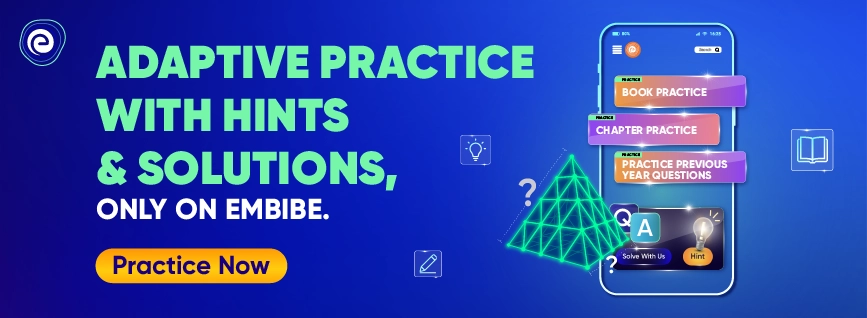- Written by nikhil
- Last Modified on 10-03-2023
Manipur Board Class 6 Exam 2023
Secondary Education Board Manipur, often known as BSEM, is a recognised school education board in Manipur. The BSEM was founded in 1972 under the Manipur Legislative Assembly Act. This act was amended in 2004, and the Board of Secondary Education, Manipur, is in charge of prescribing the syllabus and academic activities for classes 1 to 8.
For Classes 10 and 12, the Manipur Board of Secondary Education conducts the exams annually. Whereas BSEM Class 6 is a school-level exam and school authorities will announce the exam timetable on the notice board. They mostly conduct the final examinations in February or March 2023. BSEM designs the curriculum and syllabus for all classes, and all schools associated with the Manipur board must follow it. Read on to know the syllabus, preparation tips and other details of Manipur Board Class 6.
Exam Summary
BSEM is responsible for managing school education in Manipur. The Manipur Board of Secondary Education is responsible for conducting the Class 6 final examination annually. The board frames the curriculum and prescribes the syllabus for Class 6. Before starting with one’s exam preparation, students have an overall idea about the exam. For that, we have provided some information about the Manipur class 6 exam. Students can refer to the table below for further details.
| Particulars |
Details |
| Name of the Exam |
Manipur Class 6th Examination |
| Conducting Body |
Manipur Board of Secondary Education |
| Frequency of Conduct |
Yearly |
| Exam Level |
6th class |
| Mode of Application |
Offline |
| Exam Start Date |
March 2022 |
| Exam Duration |
2 Hours |
Learn Exam Concepts on Embibe
Official Website Link
https://bsem.nic.in/index.html
Manipur Board Class 6 Syllabus
The Manipur Board Class 6 syllabus contains the basic chapters and topics of all the subjects. It is essential for students to plan their exam preparation based on the syllabus. This will help them to have a well-planned exam preparation and provide them with all the chapters and topics that they need to prepare. For the convenience of students, we have provided the Manipur Board Class 6 subject-wise syllabus below. Students can refer to the table below and accordingly plan their study routines.
Check the subject-wise syllabus of Manipur Board Class 6 in the following sections.
Manipur Board Class 6 Mathematics Syllabus
The Manipur Board Class 6 Maths contains 12 chapters. It is important for students to go through all the chapters thoroughly in order to have a proper understanding of the course. This will help students to be completely exam ready. Students can check the Manipur Board Class 6 Maths syllabus in the table below:
| Unit |
Chapters |
| Number System
|
Knowing our Numbers |
| Playing with Numbers |
| Whole numbers |
| Negative Numbers and Integers |
| Fractions |
| Algebra |
Introduction To Algebra |
| Ratio and Proportion |
Ratio and Proportion |
| Geometry
|
Basic Geometrical Ideas (2 -D) |
| Understanding Elementary Shapes (2-D and 3-D) |
| Constructions (using Straight Edge Scale, Protractor, Compasses |
| Mensuration |
Concept of Perimeter and Introduction to Area |
| Data handling |
Data Handling |
Manipur Board Class 6 Science Syllabus
Science is an important subject in Manipur Board Class 6. It has 7 chapters ranging from “Sources of Food” to “Importance of Air”. Students are advised to go through each chapter properly in order to be fully prepared for their exams. Given below is the Manipur Board Class 6 Science syllabus for student’s reference:
| Chapter Name |
Topics |
| Food |
Sources of food
Components of food
Cleaning food |
| Materials |
Materials of daily use
Different kinds of materials
How things change/react with one another |
| The World of the Living |
Things around us
The habitat of the living
Plants-form and function
Animals-form and function |
| Moving Things, People and Ideas |
Moving |
| How Things Work |
Electric current and circuits |
| Natural Phenomena |
Rain, Thunder and Lightning
Light |
| Natural Resources |
Importance of Water
Importance of Air
Waste |
Manipur Board Class 6 Social Science Syllabus
The Social Science syllabus contains different chapters from History, Political Science and Geography. There are a total of 11 chapters in the Manipur board Class 6 Social Science. Students should start their preparation based on the syllabus and accordingly plan their study routine. Below we have provided the Manipur Board Class 6 Social Science syllabus:
| Chapter |
Topics |
| An Introduction to History When, Where and How |
The time frame understudy
The geographical framework
Sources |
| The Earliest Societies |
Hunting and gathering as a way of life, its implications.
Introduction to stone tools and their use.
Case study: the Deccan. |
| The First Farmers and Herders |
Implications of farming and herding.
Archaeological evidence for crops, animals, houses, tools, pottery, burials, etc.
Case study: the North-West and North-East. |
| The First Cities |
The settlement pattern of the Harappan civilisation
Unique architectural features
Craft production
The meaning of urbanism
Case study: the North-West |
| Different Ways of Life |
The Vedas and what they tell us
A contemporary chalcolithic settlement
Case studies: the North-West and the Deccan |
| Early States |
Janapadas to Mahajanapadas
Case study: Bihar, Magadha and the Vajji confederacy |
| New Ideas |
Upanishad
Jainism
Buddhism |
| The First Empire |
The expansion of the empire
Asoka
Administration |
| Life in Towns and Villages |
The second urbanisation
Agricultural intensification
Case study: Tamil Nadu |
| Contacts with Distant lands |
The Sangam texts and long-distance exchange. Suggested regions: the Tamil region, extending to Southeast Asia and the west
Conquerors from distant lands: northwestern and western India
The spread of Buddhism: north India to Central Asia. |
| Political Developments |
Gupta empire and Harshavardhana
Pallavas and Chalukyas |
Study Plan to Maximise Manipur Board Class 6 Score
Before starting with Manipur Board Class 6 exam preparation, it is essential for students to have a study plan. Having a study plan will help students in having a structured preparation. By having a study plan, students can utilize their time and resources to the fullest. Here are a few tips and tricks students can follow to prepare for the exam and score high marks.
Manipur Board Class 6 Preparation Tips
Having some preparation tips for Manipur Board Class 6 exams can be extremely helpful for students. These tips come in handy when students are starting with their preparation. Following these preparation tips will help students in having a hassle-and smooth study session. Continue reading to know more about the preparation tips for the Manipur Board Class 6.
- Follow a practical study plan: Make a proper study plan where you can cover all the chapters and topics in the syllabus and can make time for practice. Divide your time wisely between studying and practising.
- Know the syllabus and exam pattern: Make a good schedule for your day by going through the syllabus. Having all the necessary information about the exam is vital. Divide your time wisely by understanding the syllabus, exam pattern and marking scheme, so you do not cram your schedule.
- Solve sample papers: There is no better practice than attempting the sample paper. Try to solve one sample paper daily. After you have solved the paper, check the answer according to the marking scheme.
- Do not overburden your preparations: Study constructively and exercise regularly to handle stress. Keep your mind clear, and do not put much pressure to cover topics out of your reach.
BSEM Class 6 Detailed Study Plan
Students are advised to follow a study plan but making one can be a task. To help students make things easier, below we have provided the BSEM Class 6 detailed study plan. Students can follow this plan and accordingly study. Students can also make changes to the study plan provided according to their convenience. Check out the BSEM Class 6 study plan to score good marks in the exam.
- It will be a good idea to do group studies. Study with your friends if they are also preparing for the Manipur board class 6 exam.
- Fix a target daily and see how much you can achieve. Analyse your preparation by checking how you have performed while answering the questions.
- Try understanding the logic behind topics and relate them to real-life scenarios. The better grasp you have on concepts, the better chances you have to be solving the new questions that will be there in your exam.
- Do not compromise or skip any chapters or topics in the exam, as it can be risky.
Frequently Asked Questions on Manipur Board Class 6
Read some of the most Frequently Asked Questions(FAQ) about Manipur Board class 6 below:
Q. Where can I find the Manipur board class 6 textbook details?
Ans: The students can check the Manipur Board class 6 textbook name and publisher details from the official website at https://bsem.nic.in.
Q. Where can I find the Manipur Board Class 6 syllabus?
Ans: Students can find the Manipur Board Class 6 syllabus on this page.
Q. What is the full form of BSEM?
Ans: The full form of BSEM is the Board of Secondary Education Manipur. The Manipur Legislative Assembly passed a law in 1972 that formed the Board of Secondary Education in Manipur.
Q. What is the official website of BSEM?
Ans: The official website of the Manipur Board is “bsem.nic.in”.
Q. What are the minimum marks to pass the Manipur board exams?
Ans: 33% in each subject and aggregate are the minimum required marks to pass the Manipur Class 6 board exams.
Manipur Board Class 6 List of Educational Institutions
Many schools in the Manipur state provide secondary education. Below we have provided the list of secondary schools in Manipur:
| Sl. No. |
Secondary Schools in Manipur |
| 1. |
Aimol Chingnunghut High School, Chandel |
| 2. |
Al – Eddeen English School, Heibong Makhong , M/Imphal |
| 3. |
Akhui High School, Tamenglong |
| 4. |
A Jalil High School, Khergao |
| 5. |
A. Rudra High School, Tronglaobi, Moirang |
| 6. |
Abdul Ali High Madrassa, Lilong |
| 7. |
Achan English School, Ukhrul |
| 8. |
Achanbigei High School, B.P.O. Achanbigei |
| 9. |
Adimjati High School, Imphal |
| 10. |
Adimjati Little English School, Imphal |
| 11. |
Advance Learner School, Heirok |
| 12. |
Advance Public School, Moirang |
| 13. |
Agape High School, Sangaikot, Ccpur |
| 14. |
Ajad English School, Nambol |
| 15. |
Ahmedabad High School, Jiribam |
List of Future Exams for Manipur Board Class 6 Students
We have provided the list of Olympiad exams for middle school students below:
- International Science Olympiad (ISO): ISO is a global olympiad competition in which students from all over the world compete.
- International Maths Olympiad (IMO): IMO is an annual high school Mathematics competition in a different country.
- English International Olympiad (EIO): EIO exam is designed to improve students’ English spelling, grammar, sentence structure and language mastery.
- International General Knowledge Olympiad (IGKO): SOF IGKO aims to promote interest in general knowledge and current events.
- International Computer Olympiad (ICO): ICO is one of the most interesting exams because of the love for the subject. Students from class 1 to class 10 can participate in ICO.
- International Drawing Olympiad (IDO): IDO is held annually at the national level in individual schools. The competition is accessible to kids in grades 1 through 10.
- National Essay Olympiad (NESO): NESO is for students who demonstrate these characteristics. This exam is offered to students in grades 1 through 10. Mathematics, Science, General Knowledge, English and Computers are examples of mainstream subjects.
- National Social Studies Olympiad (NSSO): NSSO is a standardised test that assesses students’ understanding of history, geography and civics. It occurs at a national level through the Indian Talent Olympiad.














































